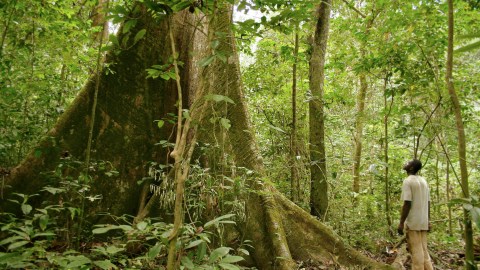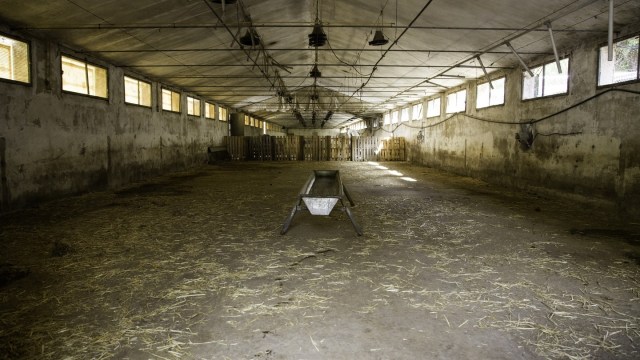In historic deal, Gabon to get $150 million to protect its forests

Image source: Axel Rouvin via Flickr
- At the Climate Action Summit in New York on Sunday, Norway announced plans to pay the Gabon $150 million over 10 years to combat deforestation and cut emissions.
- Rainforests cover some 88 percent of Gabon, but in recent years illegal logging has ravaged much of the country.
- The deal is part of the United Nations’ Central African Forest Initiative (CAFI), which helps six African nations to develop conservation plans.
Gabon – a small, equatorial African country on the Atlantic Ocean – is home to a vast network of rainforests, which cover nearly 90 percent of the country. But despite government regulations and a bold plan that set aside 10 percent of the country as protected parks, illegal logging is steadily eroding Gabon’s natural resources. In May, for example, president Ali Bongo fired his vice president and his forests minister after hundreds of seized containers carrying kevazingo timber — a valuable wood that’s illegal to harvest — went missing.
But now, Gabon is set to become the first African nation to get paid to protect its forests. At the Climate Action Summit in New York on Sunday, Norway announced plans to pay the country $150 million over 10 years to combat deforestation and cut emissions. The deal – which is part of the United Nations’ Central African Forest Initiative (CAFI) – aims to slow the effects of climate change by incentivizing Gabon cut greenhouse gasses. CAFI said in a statement that the deal aims to maintain 98 percent of Gabon’s rainforests:
“The 150 million US dollars agreement announced today between Gabon and Norway via the Central African forest initiative (CAFI) is historic in many ways. For the first time, an African country will be rewarded in a 10-year deal for both reducing its greenhouse gas emissions from deforestation and degradation, and absorptions of carbon dioxide by natural forests.”
Ola Elvestuen, Norway’s minister of climate and environment, said the deal was historic.
“I am very pleased with this results-based partnership through CAFI, which includes a historic carbon floor price to further encourage Gabon to continue to preserve its rainforest. This is a major breakthrough for REDD+ in Africa,” Elvestuen said.
Lee White, Gabon’s recently appointed minister of Forest, Seas, Environment and Climate Change, said that protecting the nation’s forests, which are part of a regional system that is often called “the world’s second lungs” and stores up to 70 billion tons of carbon, will not only help slow climate change, but also benefit the Gabonese people.
“We have to raise the value of the Gabonese rainforests in order to ensure that conservation and sustainable exploitation can be used as tools to improve the living standards of the Gabonese people by creating jobs and livelihoods, whilst also sustaining natural capital, and to preserve our natural treasures and biodiverse ecosystems,” he said.
One driver of deforestation in Gabon is the upscale furniture market in China. When processed, the kevazingo tree — also known asbubinga, amazique, and African rosewood — looks similar to wood used by the Chinese to make expensive hongmu furniture. This has encouraged illegal loggers to hunt down kevazingo trees, and similar looking trees, and smuggle them to Asia. Hopefully, Norway’s new deal will not only help curb climate change, but also help Gabon maintain its kevazingo trees, which indigenous groups consider to be sacred.





